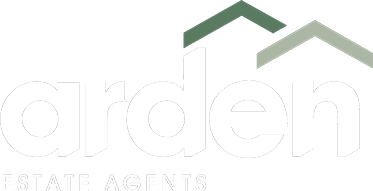Finding the best house for your budget is a journey that combines practicality, personal preferences, and sometimes, a little bit of compromise.
Whether you’re a first-time buyer, an experienced homebuyer or a seasoned investor, the quest for the perfect property within your budget can be both exciting and daunting.
In this article, we’ll explore how to navigate the housing market to find a home that not only fits your budget but also suits your needs and lifestyle.
Understanding Your Mortgage Options
The first step in determining what house you can afford is understanding how much you can borrow. Your borrowing power is influenced by your income, deposit or equity in your current property, debts, credit score, and the current interest rates. Speaking with a mortgage advisor or using online mortgage calculators can give you a ballpark figure of what lenders might offer you. Remember, the amount you can borrow and the amount you should borrow are not always the same. It’s crucial to consider your lifestyle and other spending habits to ensure you’re comfortable with your monthly mortgage payments.
Determining Your Needs
Once you have an idea of your budget, it’s time to consider what you need in a home. How many bedrooms and bathrooms are necessary? Do you want a modern kitchen, a home office, or a large garden? These requirements will significantly narrow down your search. However, flexibility is key. For example, an extra bedroom might double as a home office, or a loft room can be finished to add additional living space.
Location, Location, Location
The adage “location, location, location” holds true when looking for a home. A property’s location affects its price, potential for appreciation, and your quality of life. Urban areas offer closer proximity to amenities, work, and entertainment, but rural areas are fantastic if you’d like more space, can work remotely and enjoy the great outdoors. Decide what’s more important to you: city or country living, or something in between.
Turn-Key vs. Fixer-Upper
Deciding between a turn-key property and one that requires work is a significant decision. Turn-key homes are move-in ready and require little to no immediate work, making them ideal for buyers who prefer convenience or lack the time, skills, or budget for renovations. On the other hand, fixer-uppers can be a great way to get into a desirable neighbourhood at a lower price point, provided you’re willing to invest time and money into renovations and possibly even an extension. Assess your willingness to take on projects, the potential renovation costs, and whether you’ll need alternate living arrangements while work is being carried out.
Additional Costs
It’s not just the price of the house you need to consider; there are additional costs to home buying that can affect your budget. Solicitor fees, stamp duty, home surveys, repairs, moving expenses, and ongoing maintenance can add up quickly. Council tax, utility bills and insurances will also impact your monthly expenses. Make sure to account for these when setting your budget.
Future Proofing Your Purchase
Think about how long you plan to stay in the home and how your needs might change over time. A house that suits you now might not be ideal in five or ten years. Consider factors like the potential for expanding your family, work-from-home capabilities, and the home’s adaptability to aging.
The Search
With your criteria and budget in mind, start your search. Online property platforms, such as Rightmove and Zoopla, and working with an estate agent are great ways to find available properties as soon as they hit the market. Keep an open mind and be prepared to act quickly in a competitive market. Remember, patience is key; finding the right home might take time and a little compromise.
Making an Offer
When you find a home that ticks most of your boxes and feels right, it’s time to make an offer. Work with your estate agent to understand the market value of the property and any competing offers. Your offer should be competitive but also within your budget and reflect the home’s condition and any work it may require.
Negotiation and Completion
Negotiation is a normal part of the home buying process. Be prepared to negotiate on price. Once your offer is accepted, you’ll move towards completion, which involves working with your estate agent and solicitor, finally ending with you getting the keys to your new home.
Conclusion
Finding the best house for your budget is a multifaceted process that requires careful consideration of your finances, needs, and preferences. It’s about finding the right balance between what you can afford, what you need, and what you want in a home.
With the right approach and a bit of patience, you can find a home that not only fits your budget but also supports your lifestyle and dreams for the future.
Remember, the perfect home doesn’t have to have everything from the start; it’s the place where you can grow, put your own stamp on it over time and make memories.
If you’re ready to start your property journey, contact us today!
We have offices across Worcestershire and the West Midlands including Barnt Green, Bromsgrove, Redditch, Rubery, Solihull and Worcester, and our friendly team of experts are here to advise and help you every step of the way!

